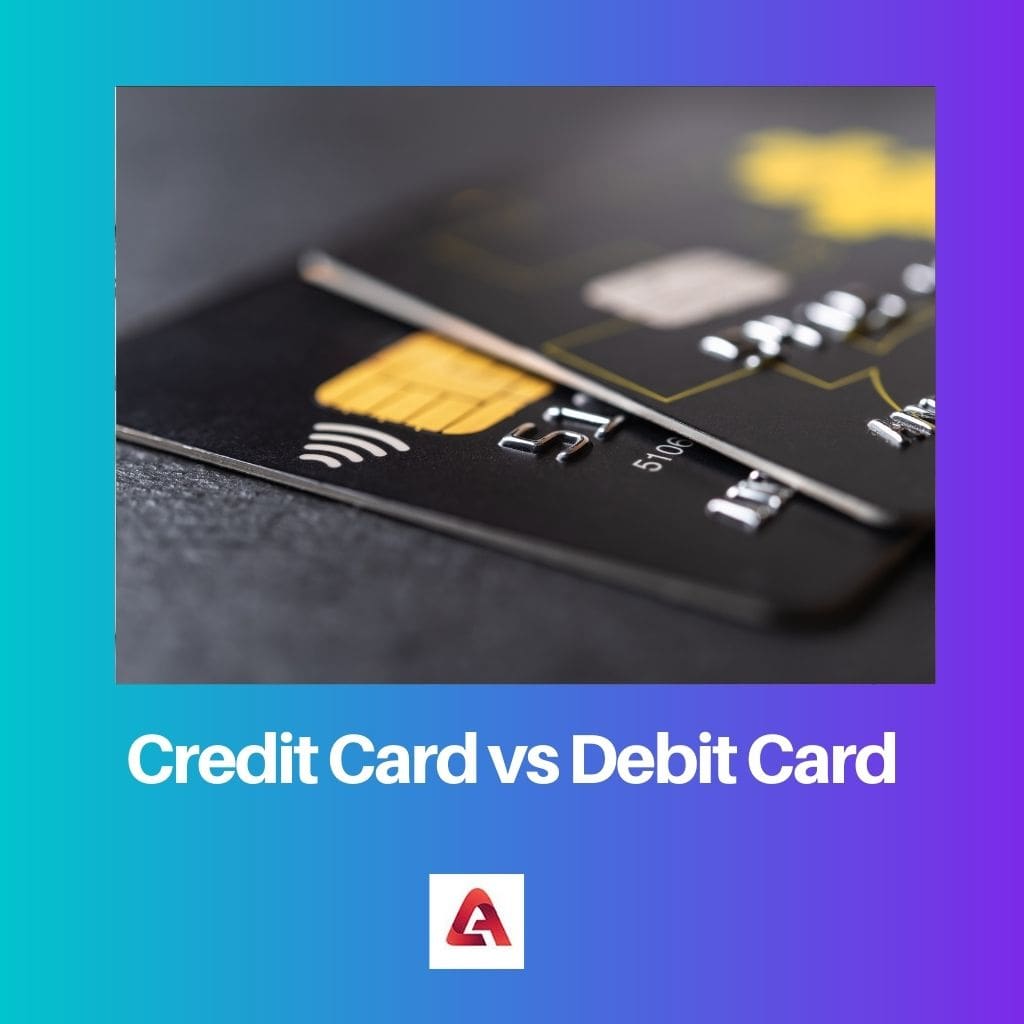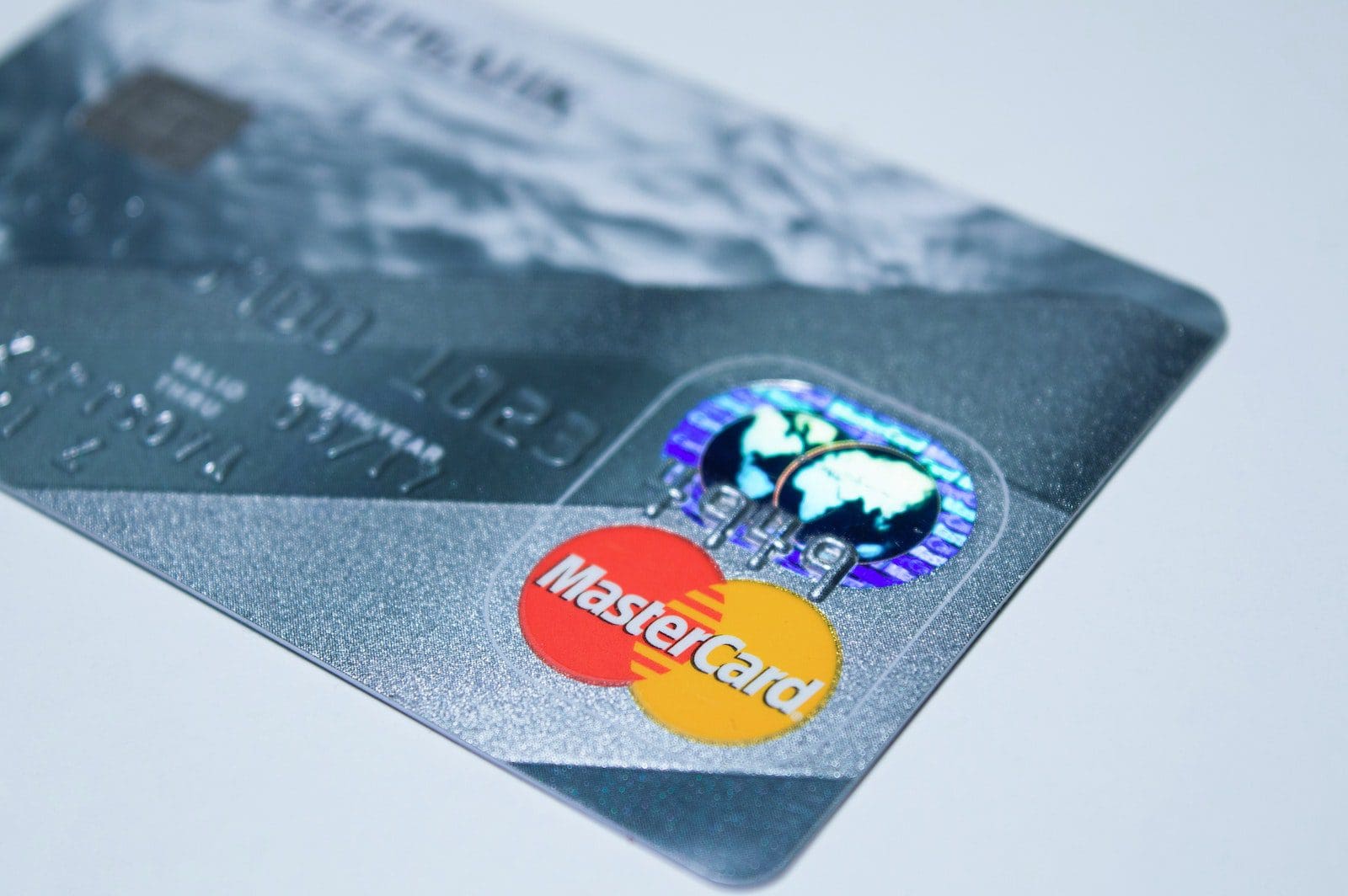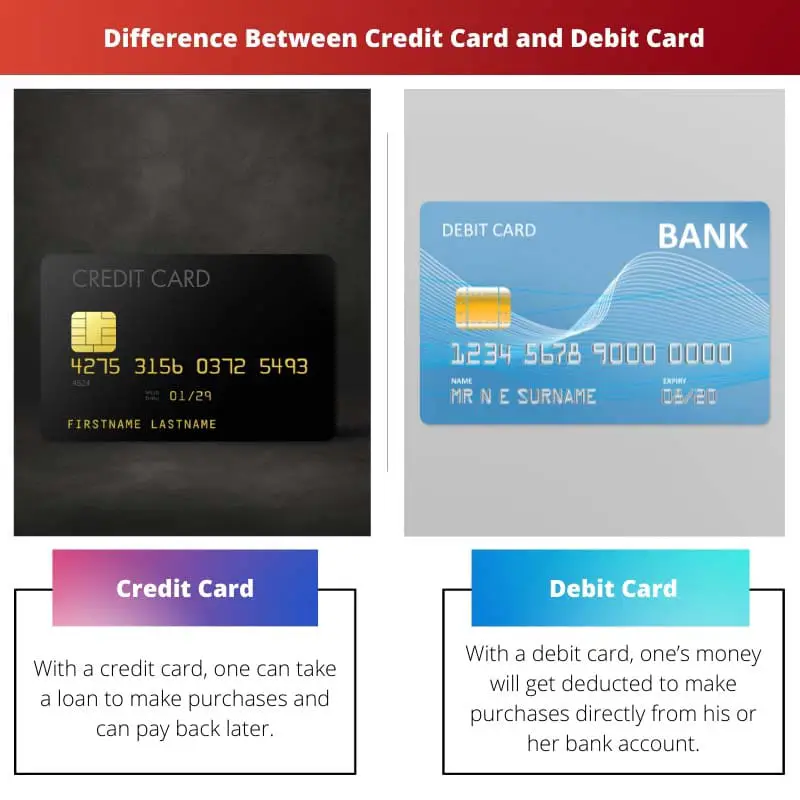Credit cards allow users to borrow money up to a predetermined limit, with interest charged on unpaid balances, offering rewards and perks, while debit cards directly deduct funds from the user’s bank account, limiting spending to available funds without incurring debt or interest charges.
Key Takeaways
- Credit cards allow you to borrow money to make purchases, while debit cards let you spend what you already have in your account.
- Credit cards may charge you interest and fees if you don’t pay your balance in full each month, whereas debit cards have no such costs.
- Credit cards are better for building a credit history and earning rewards, while debit cards are more suitable for controlling spending and avoiding debt.
Credit Card vs Debit Card
A credit card is a type of payment card that allows cardholders to borrow money from the issuing bank to make purchases. A debit card is a type of payment card that is linked to a checking account. Credit cards allow cardholders to borrow money to make purchases, unlike debit cards.

In the case of a debit card, as it is linked to the bank account, the funds will be pulled straight from the balance he or she has. After a transaction, one can withdraw the money immediately by using a PIN.
Comparison Table
| Feature | Credit Card | Debit Card |
|---|---|---|
| Source of funds | Borrowing from a credit line | Funds directly from your checking or savings account |
| Spending limit | Set by the credit card issuer, higher than your account balance | Limited to the available balance in your linked account |
| Interest | Charged on outstanding balances not paid in full by the due date (high interest rates) | No interest charged |
| Fees | Annual fees, late payment fees, foreign transaction fees, etc. may apply | Usually lower fees, limited to ATM withdrawal fees or inactivity fees |
| Building credit | Responsible use helps build and improve your credit score | No impact on your credit score |
| Consumer protection | Generally offer greater protection against fraud and unauthorized charges | May offer less protection compared to credit cards |
| Rewards programs | Many offer rewards programs like cash back, travel points, or other benefits | Few debit cards offer rewards programs, and those that do tend to have less generous rewards |
What is Credit Card?
A credit card is a financial tool that allows cardholders to borrow funds up to a predetermined limit to make purchases. It operates on a revolving credit system, allowing users to carry a balance from month to month, subject to interest charges. Credit cards are issued by financial institutions, such as banks or credit card companies, and they have become ubiquitous in modern financial transactions.
Key Features
Credit Limit
Credit cards come with a predefined credit limit, representing the maximum amount a cardholder can borrow. This limit is determined based on the individual’s creditworthiness, income, and other financial factors. Exceeding this limit may result in declined transactions or additional fees.
Revolving Credit
One distinctive feature of credit cards is the revolving credit system. Cardholders can carry a balance from one billing cycle to the next, paying a minimum amount due. However, interest is charged on the remaining balance, making it essential for users to manage their credit responsibly to avoid accumulating debt.
Interest Rates
Credit cards come with variable interest rates, which can be high. The Annual Percentage Rate (APR) represents the cost of borrowing and includes interest and other fees. Understanding the APR is crucial for users to assess the true cost of carrying a balance.
Usage and Transactions
Purchases
Credit cards are widely accepted for various purchases, both online and offline. Cardholders can use their credit cards to pay for goods and services, making transactions convenient and eliminating the need for carrying large amounts of cash.
Cash Advances
In addition to purchases, credit cards may allow users to obtain cash advances from ATMs. However, cash advances come with higher interest rates and fees, making them less favorable than regular purchases.
Rewards and Benefits
Rewards Programs
Many credit cards offer rewards programs that allow users to earn points, miles, or cash back on their purchases. These rewards can be redeemed for travel, merchandise, statement credits, or other perks, providing an incentive for responsible card usage.
Additional Benefits
Credit cards may offer various additional benefits, such as travel insurance, purchase protection, extended warranties, and access to airport lounges. These perks enhance the overall value proposition of owning a particular credit card.
Responsibilities and Risks
Responsible Credit Management
While credit cards offer financial flexibility, responsible credit management is crucial. Timely payment of balances, monitoring spending habits, and staying within the credit limit are essential to avoid accumulating debt and maintaining a positive credit history.
Risks of Debt Accumulation
Mismanagement of credit cards can lead to debt accumulation, negatively impacting an individual’s financial health. High-interest rates and fees can contribute to a cycle of debt if balances are not paid off on time.

What is Debit Card?
A debit card is a payment card linked directly to a user’s bank account, allowing them to make purchases and withdraw cash. Unlike credit cards, which extend a line of credit, debit cards facilitate transactions by immediately debiting funds from the user’s account.
How Debit Cards Work
When a debit card is used for a transaction, the amount spent is deducted directly from the user’s checking or savings account. This real-time deduction ensures that users can only spend what they have available in their account, preventing overspending and debt accumulation.
Features and Benefits of Debit Cards
- Convenience: Debit cards offer a convenient way to make purchases and access funds without the need to carry large amounts of cash.
- Budgeting: Since debit card transactions immediately deduct funds from the user’s account, they can help individuals track their spending and stick to their budget more effectively than credit cards.
- No Interest Charges: Unlike credit cards, which may accrue interest on unpaid balances, debit cards do not involve borrowing money, so there are no interest charges associated with their use.
- Widespread Acceptance: Debit cards are widely accepted by merchants globally, allowing users to make purchases both online and in-person at millions of locations.
- ATM Access: Debit cards can be used to withdraw cash from automated teller machines (ATMs), providing users with convenient access to their funds 24/7.
Security Considerations
While debit cards offer numerous benefits, users should remain vigilant about their security. It’s essential to monitor account activity regularly, report any unauthorized transactions promptly, and take advantage of security features offered by the card issuer, such as fraud alerts and EMV chip technology.

Main Differences Between Credit Cards and Debit Cards
- Ownership and Governance:
- BSE (Bombay Stock Exchange) is the oldest stock exchange in Asia, established in 1875, while NSE (National Stock Exchange) was founded in 1992.
- BSE is a corporatized and demutualized entity, while NSE is a public limited company.
- Trading Platform:
- BSE operates on the BOLT (BSE OnLine Trading) platform, whereas NSE uses the NEAT (National Exchange for Automated Trading) system.
- NSE is known for its electronic trading system, which offers high-speed, automated trading, while BSE has transitioned from an open outcry system to electronic trading.
- Indices:
- BSE’s benchmark index is the Sensex, comprising 30 actively traded stocks, representing various sectors of the Indian economy.
- NSE’s benchmark index is the Nifty 50, which consists of 50 large-cap stocks across 12 sectors, providing a broader representation of the Indian equity market.
- Market Share:
- NSE has a higher market share in terms of trading volumes and turnover compared to BSE.
- NSE is preferred by institutional investors due to its advanced trading infrastructure and liquidity.
- Regulatory Oversight:
- Both BSE and NSE are regulated by the Securities and Exchange Board of India (SEBI), ensuring compliance with regulatory standards and investor protection.
- SEBI regulates the operations, listing requirements, and trading practices of both exchanges to maintain transparency and integrity in the Indian capital markets.


I appreciate the detailed breakdown of credit cards and debit cards, especially the key features and risks associated with credit card usage. It’s important to understand the responsibilities and potential drawbacks.
The benefits of rewards programs and additional perks offered by credit cards serve as an incentive for responsible usage. It’s important to capitalize on these benefits while managing credit card spending wisely.
This article provides a comprehensive comparison of credit and debit cards, making it easier to understand the differences and decide which type of card is best suited for different financial situations.
The detailed explanation of credit limit, revolving credit, and interest rates associated with credit cards offers valuable insights for individuals aiming to enhance their financial literacy. This article is a great resource for understanding credit card fundamentals.
The comparison table provided in this article highlights the fundamental differences between credit and debit cards, shedding light on factors such as interest charges, building credit, and potential fees.
I appreciate the balanced approach to presenting the features, benefits, and risks of using credit cards. It’s important to weigh the pros and cons before deciding which type of card aligns with one’s financial objectives.
Understanding the concept of revolving credit and interest rates associated with credit cards is essential for individuals looking to make informed financial decisions. This article does an excellent job of explaining these concepts.
The comparison of credit and debit cards serves as a helpful guide for individuals navigating the realm of personal finance. This article effectively addresses the advantages, drawbacks, and best practices associated with each type of card.
I disagree with the notion that debit cards have less fraud protection. Both credit and debit cards have their own security features and risks. It’s crucial to monitor transactions and report any unauthorized activity.
The emphasis on responsible credit management and the risks associated with accumulating debt through credit card usage is a crucial aspect of this article. Financial literacy is key in making sound financial choices.